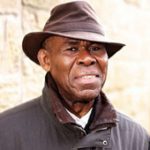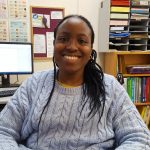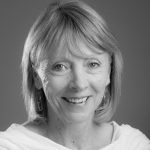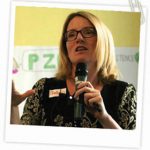Voices for inclusion
We asked some leading supporters of inclusion to tell us what has changed since 2001 and about their aspirations for the future.
Julia Hayes, Educational Psychologist (Inclusion Now 33)
Just like parents in the UK, parents in developing countries want their disabled child to be educated, but with many facing barriers like poverty, conflict and lack of access to schools, it is estimated that 90% of disabled children in low- and middle-income countries are out of school (UNICEF, 2014). Despite these challenges, I have worked with lots of committed NGOs and education ministries around the world, trying to support disabled children to gain a quality, inclusive education.
For example, I evaluated a great project in Afghanistan that went door to door to find disabled children in rural areas who were being kept in their homes to keep them safe from conflict. The project worked with the families and children, introduced them to a classroom environment, before supporting them to access their local schools (read more in Issue 33, Autumn 2012). I am always reminded that if people in countries with scarce resources and huge challenges can make inclusive education happen, then so can we. Progress might be slow, but we can make this happen!
 Adele Rose-Morgan, parent of Rhys (IN 48)
Adele Rose-Morgan, parent of Rhys (IN 48)
I recently re-read the very first edition of Inclusion Now from Spring 2001 and felt downhearted. The words I was reading were so relevant for us today, but I also feel that we are moving away from inclusion at a fast rate. The targets for schools are getting higher and higher and money is getting tighter. My child does not matter to the ratings or the targets and will cost more for a school. So guess what? They don’t want him.
The term ‘inclusion’ gets talked about a lot, especially when a box needs to be ticked. Inclusion for me means so much more than that – it means equality, equity, belonging, value, humanity. To me, it is beautiful and involves, affects and benefits everyone. Do we really need to compartmentalise inclusion? Physical inclusion looks like this, racial inclusion like that? What about admitting there are no excuses for not including any child in their right to education, together with children with and without disabilities. Accept this and work it out. I am sure that this is cheaper, more cost effective and, most importantly, would improve wellbeing and health outcomes for countless children and carers.
Disabled people aren’t just individuals, they have families who are also often disabled by the system due to lack of support for their caring role. I am one of those people. I am affected by a segregated dual system as a carer because I have to fight to ensure that my child has the best possible chance of reaching his full potential. This has a huge impact on my own mental and physical health because it’s an adversarial system. It is also a full-time job, which means I am unable to work in paid employment and contribute to my pension. If our outlook was to ‘include all’ the physical and social barriers would disappear. Would we need so many ‘special services’? Would our future generation grow up to support each other regardless of perceived need or deficit? This is not a minority group – it’s massive!
Putting myself in my son’s position – what is it really like to be seen as a ‘problem’ to be passed around and fobbed off in the hope that I will simply disappear? I am Adele and I have additional needs – in support, understanding and real, practical help. My positive traits (determination, passion, hope!) are perceived as very low value to the general population. How can I climb out of this hole and emerge feeling truly valued? How can I realise my full potential? Answers on a postcard!
 Derek Wilson, Educational Psychologist (IN 36)
Derek Wilson, Educational Psychologist (IN 36)
No politician ever stood up and said ‘Our policies are exclusionary and privilege only the few’. No Headteacher ever began her parents’ evening welcome by saying ‘We are not an inclusive school’. Each wants their work to serve the interests of all, but this does not mean their practice achieves this. Clearly ‘all’ does not mean ‘all’ in many of our schools and our education policies – ‘all’ means ‘some’.
Fifty issues of Inclusion Now (and counting) have challenged this doublethink and shown us what inclusion means and can look like – anywhere and every day.
ALLFIE and Inclusion Now– they’re here to prove that all (still) means all – that full educational inclusion is a possibility we can live into.
 Gus John, educationalist (IN 37)
Gus John, educationalist (IN 37)
One sure sign of the duplicity and hubris of government is its apparent inability to consider the impact of one piece of legislation or/and statutory guidance on others that already exist. This is clearly evident in the powers conferred on schools to exclude students, regardless of their rights being denied by whimsical, illegal and inhumane exclusion practices.
Despite evidence of the appalling disproportionality in the number of SEND students who are excluded, the government has made no attempt to prohibit the practice. We must all campaign to demand that no ‘child in need’, or who is the subject of a child protection plan, or education, health and care plan, or is assessed as having social, emotional and mental health needs should be excluded from school.
 Yewande Akintelu-Omoniyi, ALLFIE volunteer (IN 38)
Yewande Akintelu-Omoniyi, ALLFIE volunteer (IN 38)
Seventeen years ago I was in primary school under the Labour government, getting ready to go to secondary school the following year. The Labour government would be in power for the next eight years until I left school after sixth form. During my time at secondary school, I would say that I experienced integration, not inclusion. We had many Disabled students in my school but I am sure many of them would say that they did not have an inclusive experience. For example, I spent a lot of time in school surrounded by my non-Disabled peers. However they rarely wanted to build friendships with me, which left me feeling isolated. Nevertheless being around non-Disabled students showed me what I could achieve in life, for example going to university, if the barriers I experienced as a Disabled person were removed.
In contrast, under the coalition government it became even harder to get a Disabled child into mainstream and segregation increased as David Cameron said he wanted to “reverse the bias towards inclusion”. Also, Theresa May wanted to increase selective education. However, I do believe that we can still create more positive inclusive experiences in schools and push for proper inclusion in education. Inclusion can do positive things such as raise aspirations. Awareness needs to be raised in schools of issues such as Disability equality, and there needs to be an inclusive ethos in schools. This however, will take time but can be achieved if we work together with allies such as parents and teachers.
 Linda Jordan, Governor of Eastlea Community School, Newham (IN 45)
Linda Jordan, Governor of Eastlea Community School, Newham (IN 45)
As we celebrate the 50th edition of Inclusion Now I can’t help reflecting on my time as an elected member of Newham Council. Between 1988 and 1994 we closed six special schools and created a culture which expected disabled children and young people to be included in local mainstream nurseries, schools and colleges. It was a good time and all over the country there were debates about inclusion and a genuine will to make changes. Anti-bullying and anti-discrimination policies were being developed and there was an air of excitement that finally we could create an education system where everybody is equally valued and free to be themselves. Sadly over the last fifteen years we have seen an erosion of these values and a return to an elitist model of education where exclusion and bullying is on the increase. The narrowing of the curriculum and a focus on distorted measures of “progress” means that very many schools now think it is ok to say “You do not belong here”. This has led to a perception that more “specialist” schools are needed. Thank goodness we have managed to stave of the worst of this in Newham and still have a very low number of children in special schools.
I want every school to be specialist so that they can welcome, nurture and love every child and young person in the community they serve. There is so much to do but we must remain optimistic in the knowledge that inclusion is the only way for the future. Best wishes for the future – keep highlighting what is positive and possible and how important it is for a healthy society
http://www.eastlea.newham.sch.uk
 Louise King, Director, Children’s Rights Alliance for England
Louise King, Director, Children’s Rights Alliance for England
The most significant development since 2001 for The Children’s Rights Alliance for England, is the UN Convention on the Rights of Persons with Disabilities (CRPD) – adopted by the UN in 2006 and ratified by the UK in 2009. The CRPD builds on the rights that all children have under the UN Convention on the Rights of the Child by giving additional important rights to disabled children, including the right to an inclusive education. While we still have a long way to go until the ambition of article 24 is realised, the CRPD is none the less an important tool for holding government to account to ensure disabled children and children with Special Educational Needs can attend a mainstream school.
 Linda Lascelles, CEO, Afasic
Linda Lascelles, CEO, Afasic
7% of children are affected by DLD (Developmental Language Disorder) but, shockingly, this is identified in only half of cases. This is the consequence of persistent attitudes within the education system, and society at large, that take language for granted. So teachers are not trained to identify and support children and language is not explicitly included in the curriculum. Instead, too many children are simply labelled as underachievers and not helped to develop the skills that will enable them to reach their potential. A truly inclusive system would actively teach children the language skills they need to access the curriculum, make friends, and achieve a successful transition to adult life.
![Allfie [logo]](https://www.allfie.org.uk/wp-content/themes/allfie-base-theme/assets/img/allfie-logo-original.svg)




